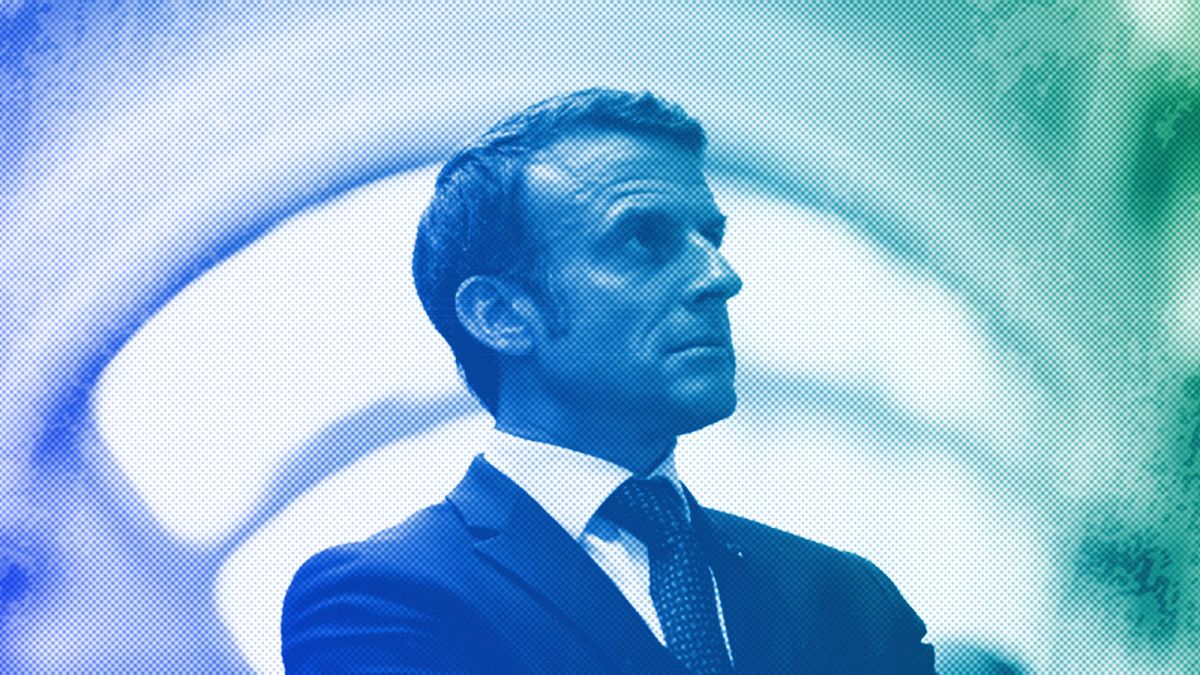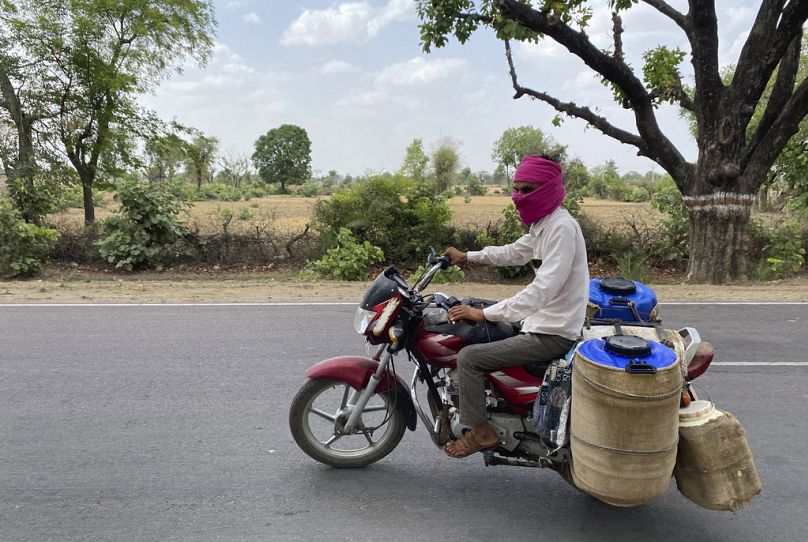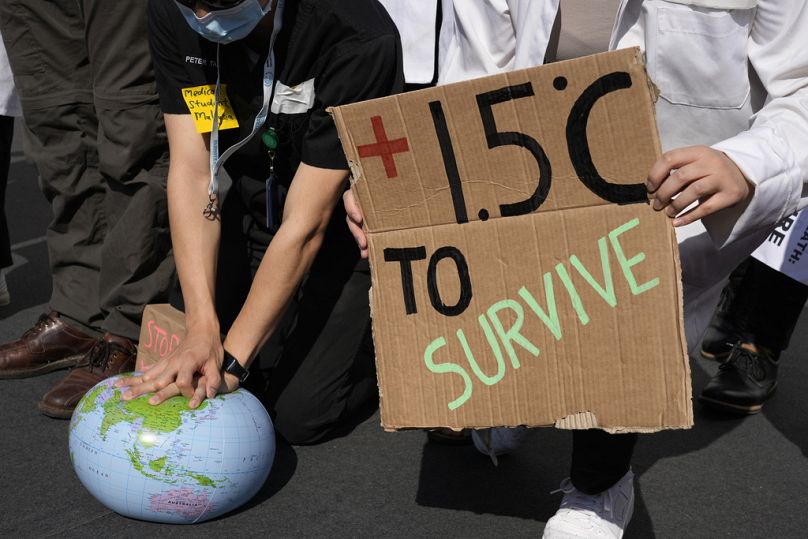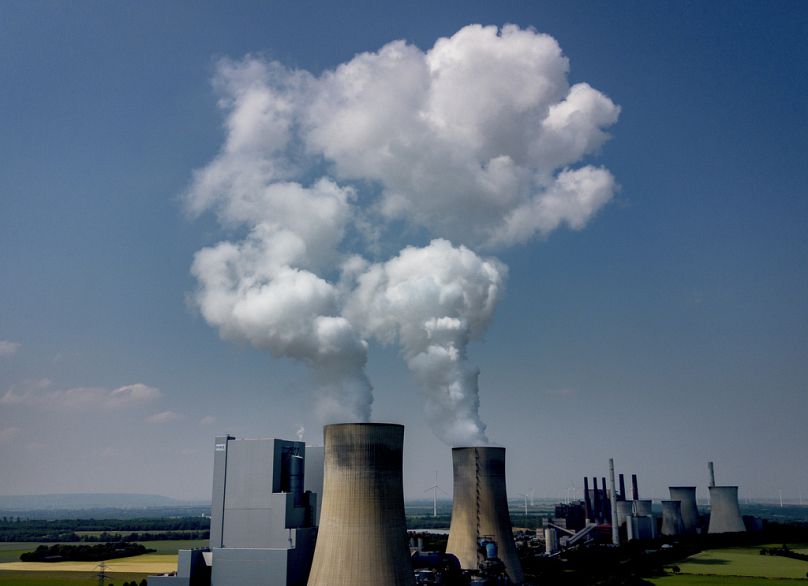The Summit for a New Global Financing Pact is more than another date in the geopolitical calendar. It’s a platform to start urgent dialogue, share innovative ideas and promote joint action among key actors, Danny Alexander writes.
During my five years serving in the British government, the issue of climate change was seen by many as a fringe matter, seldom at the top of the agenda in Westminster and in political capitals around the world.
But more than a decade later, climate change is arguably the foremost priority of governments around the world. And it’s no surprise.
The climate crisis is costing lives and damaging livelihoods across the world – and especially in the global south.
How seriously governments are taking the climate crisis is perfectly illustrated by an upcoming summit hosted by France’s President Emmanuel Macron.
The summit will explore a new global financing pact to support lower-income regions and is our opportunity to address the years of under-action by drastically stepping up climate investment.
Alarmingly, at present, we need approximately 3-6 times the level of climate investment that currently exists.
Green investment's funding shortfall
During my time in government, I am still proud that we were able to move the climate agenda forward via the Energy Act 2013 – our action has led to the UK becoming one of the largest offshore wind markets in the world – and through participation in International Climate Agreements.
But since leaving UK politics and moving to help start a new multilateral development bank, the AIIB, I’ve learned more about the challenges facing regions at the forefront of the climate crisis.
It’s clear that while there are growing opportunities for green investment, there’s a funding shortfall that urgently needs addressing.
The summit is an opportunity to explore ways of financing countries most affected by climate change, as well as encouraging ambitious investment in green infrastructure that will boost prosperity and stability.
It’s a chance for banks, governments and investors to recognise that we’re running out of time to step up support for vital green investment projects. In other words, act now, or it’ll be too late.
It's not just about 'financial solidarity'
The summit will explore what President Macron calls “financial solidarity”, but it’s also about leadership and taking action to tackle the gravest issue of our times.
By modest estimates, climate financing needs to grow to around $5 trillion (€4.3tn) annually if we’re going to meet the Paris Agreement target of limiting global warming to 1.5 degrees Celsius.
At present, it’s not even close (hovering around $653 billion, or €597.6bn). Governments and cautious investors will not achieve this goal without significantly increasing support.
Projects such as our recently approved LOK Capital Fund 4 in India to develop green and technology-enabled infrastructure can make the difference in directing much-needed funds toward the most vulnerable regions.
This can help develop essential infrastructure, including education, health, transport, and basic utilities that power growth and prosperity.
So, how do we solve the investment shortfall? And how can multilateral development banks (MDBs) help?
Leadership and collaboration across the green investment ecosystem is a good place to start.
Bringing local, specialist knowledge to the table
MDBs and investors can play a key role in addressing the disparities that leave many parts of the global south more vulnerable to climate change.
While in the past, some MDBs have been criticised over transparency, events such as the summit can be an opportunity to show positive leadership by channelling greater investment at a more rapid pace toward at-risk regions.
MDBs have a proven track record of using their local, specialist knowledge to offer a wide range of innovative investment and co-financing opportunities, from green bonds to debt for environment swaps.
And cutting-edge climate tech investment projects continue to offer new ways of delivering profit with purpose. MDBs are a powerful tool in the armoury of the battle against climate change.
By working more strategically with other MDBs, we can build on our collective strengths to deliver climate solutions needed for our members.
MDBs are already working on crisis facilities and the inclusion of Climate Resilient Debt Clauses in lending operations to respond to climate emergencies.
Climate financing via local financial intermediaries is also an approach that MDBs can build upon.
A new global financial landscape is on the horizon
Overall, MDBs financing for climate needs to be scaled up dramatically in the coming years and in a way that also helps the private sector to mobilise.
This is the focus of global discussions now, and AIIB is committed to playing its full part.
The Summit for a New Global Financing Pact is more than another date in the geopolitical calendar. It’s a platform to start urgent dialogue, share innovative ideas and promote joint action among key actors.
Inaction is not an option. Together we can, and we must, collectively shape a new, global financial landscape that is inclusive, sustainable, and resilient.
Let’s start that work today.
Sir Danny Alexander is Vice President, Policy and Strategy at the Asian Infrastructure Investment Bank (AIIB).
At Euronews, we believe all views matter. Contact us at view@euronews.com to send pitches or submissions and be part of the conversation.



